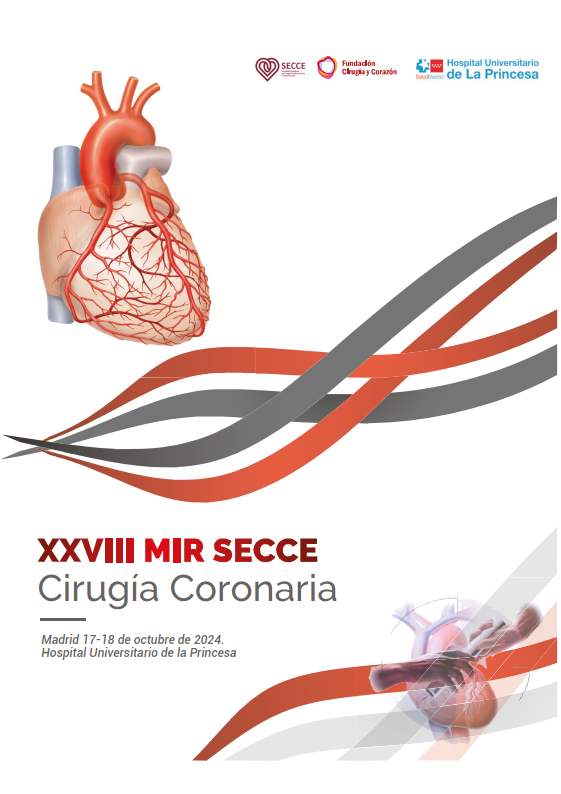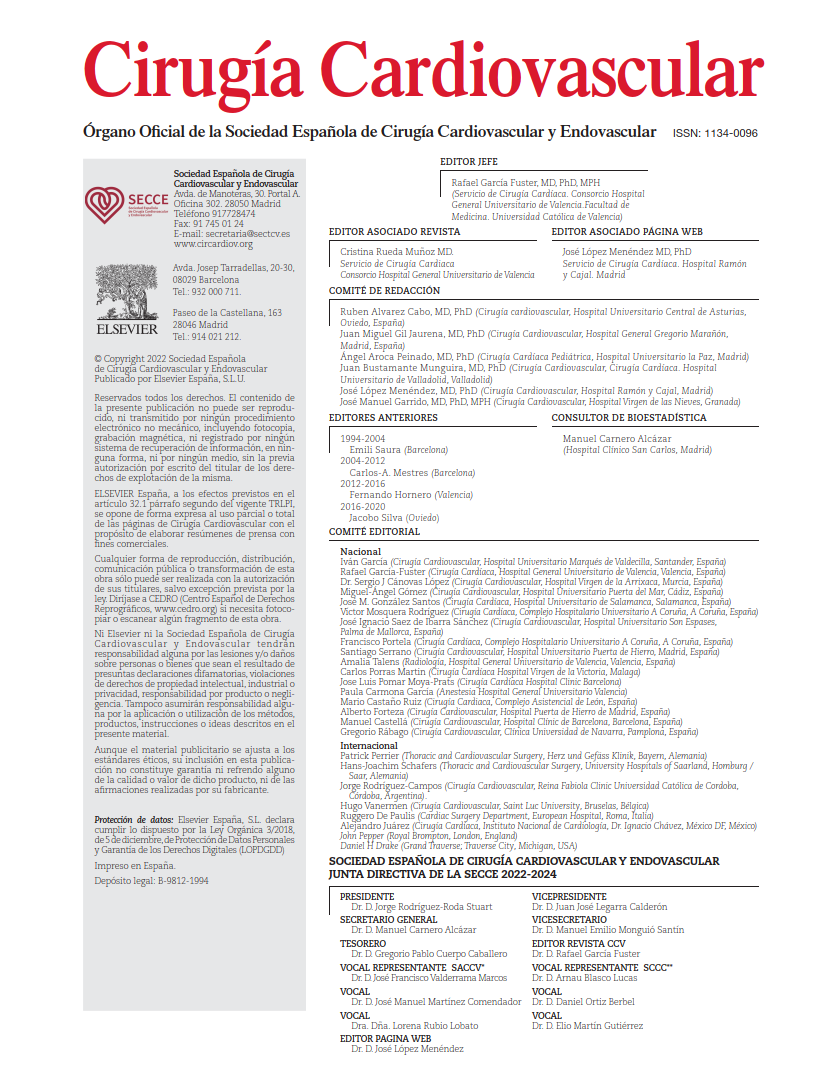Tricuspid regurgitation has long been regarded as the “forgotten” valvular lesion, despite its association with considerable morbidity and mortality. Management has traditionally relied on medical therapy (primarily diuretics) and surgery, with long-term outcomes of both approaches leaving ample room for improvement.
Moderate or severe TR is common in patients with heart failure (HF), and its prevalence is not negligible in those with advanced HF who may be candidates for durable LVAD implantation. It has been hypothesized that concomitant TVS could prevent postoperative RHF, a complication affecting up to 40% of these patients, which carries a worse prognosis and a high complication rate. Nevertheless, evidence remains limited and conflicting.
The most relevant study to date is the randomized TVVAD trial, which enrolled 71 patients with significant TR, assigned either to LVAD alone (n = 34) or to LVAD + TVS (n = 37). Most patients had moderate or severe right ventricular dysfunction and INTERMACS profiles between 1 and 2. The choice of surgical technique, annuloplasty or valve replacement, was left to the surgeon’s discretion, seeking to replicate real-world practice as closely as possible.
The published 12-month outcomes were as follows:
- Incidence of moderate or severe RHF: similar between groups (50.0% vs 51.4%), with all events occurring within the first 6 months.
- Overall mortality: approximately 20% in both groups.
- Immediate TR improvement in the TVS group, although the non-surgical group also showed progressive reduction, with severity equalized at 12 months.
- No differences in peak oxygen consumption (CPET), 6-minute walk test, functional class (NYHA), or quality of life.
- Adverse events and readmission rates were comparable between arms, with no safety advantage observed in either group.
In summary, concomitant TVS did not reduce the incidence of RHF nor improve function or survival at 1 year. The spontaneous improvement in TR over time, once adequate unloading was achieved with LVAD, challenges the need for routine intervention, at least in moderate cases.
COMMENTARY:
The subsequent discussion of the trial highlights three relevant aspects:
- In the subgroup analysis by baseline severity (moderate vs severe), no differences were found in RHF incidence or in the timing of its onset, as all events occurred within the first postoperative month. This suggests that not all cases classified as moderate TR require intervention. Consequently, the investigative team (Duke University) proposed that moderate TR should not be addressed during LVAD implantation. For severe cases, however, current evidence remains insufficient to establish a new indication, and a dedicated trial focusing solely on this subgroup would be necessary.
- A major limitation of the trial was the absence of detailed echocardiographic data regarding TR mechanisms. Standardized imaging would be useful to refine patient selection for TVS. Additionally, proper LVAD management—particularly avoiding excessive pump speeds that may lead to left ventricular over-unloading—was emphasized as a key factor in RHF prevention.
- Finally, the short follow-up period posed another limitation. The TVVAD trial was designed to detect differences at 6 months, a time frame too narrow to provide robust statistical power or capture longer-term outcomes. The trial was in fact terminated early for futility, as projections indicated that several thousand patients would have been required to achieve statistical significance for the primary endpoint—a sample size unfeasible even in a multicenter setting.
This study and its commentary challenge the systematic indication of concomitant TVS in patients undergoing durable LVAD implantation with moderate TR, favoring instead a more selective approach. The observation that TR may improve spontaneously with ventricular unloading underscores the need to reconsider the risk-benefit balance of TVS, potentially reserving it for severe cases or for anatomically irreversible mechanisms. Nonetheless, a substantial evidence gap persists due to the lack of appropriately designed, adequately powered studies targeting the relevant population. Until such data become available, individualized selection and multidisciplinary evaluation remain critical to optimize outcomes.
REFERENCE:
Mendiola Pla M, Russell SD, Milano CA, Chiang Y, Kang L, Poehlein E, et al. Late follow-up for a randomized trial of surgical treatment of tricuspid valve regurgitation in patients undergoing left ventricular assist device implantation. J Thorac Cardiovasc Surg. 2025 Jul;170(1):244-253.e3. doi: 10.1016/j.jtcvs.2024.09.023.



